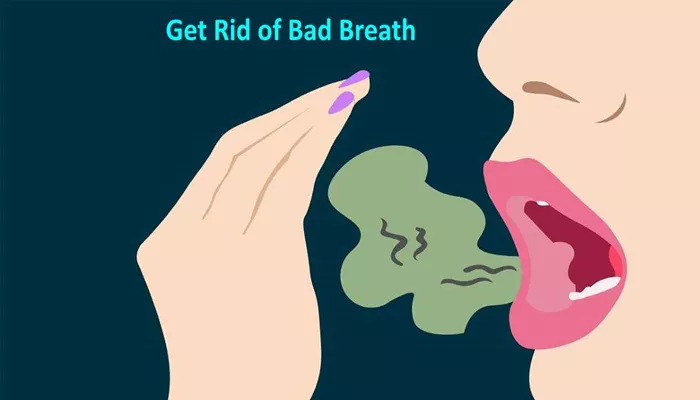Bad breath, also known as halitosis, is an embarrassing and often persistent problem that affects many people. It can result from poor dental hygiene, certain foods, medical conditions, or lifestyle habits. While professional dental care is essential for maintaining oral health, there are several home remedies that can help combat bad breath effectively. These remedies are simple, affordable, and can be easily incorporated into your daily routine. This article will explore various home remedies for bad breath and how they work.
What Causes Bad Breath?
Before diving into the remedies, it’s essential to understand the common causes of bad breath:
Poor Oral Hygiene: Inadequate brushing and flossing allow food particles to remain in the mouth, promoting bacterial growth and leading to foul odors.
Dry Mouth: Saliva helps cleanse the mouth. A dry mouth, often caused by dehydration, medications, or mouth breathing, can contribute to bad breath.
Diet: Foods such as garlic, onions, and spices can leave a lingering smell in the mouth.
Medical Conditions: Sinus infections, respiratory conditions, and gastrointestinal issues can cause unpleasant breath.
Tobacco Use: Smoking and chewing tobacco products not only stain teeth but also cause persistent bad breath.
Effective Home Remedies for Bad Breath
1. Practice Proper Oral Hygiene
Good oral hygiene is the foundation of fresh breath. Follow these steps:
Brush Twice Daily: Use a fluoride toothpaste to brush your teeth thoroughly, especially after meals.
Floss Daily: Flossing removes food particles and plaque between teeth, areas that your toothbrush can’t reach.
Clean Your Tongue: Use a tongue scraper or your toothbrush to remove bacteria from your tongue, which is a common source of bad breath.
Replace Your Toothbrush: Change your toothbrush every three to four months to ensure effective cleaning.
2. Stay Hydrated
Dry mouth can worsen bad breath. Drink plenty of water throughout the day to keep your mouth moist and wash away food particles and bacteria. Chewing sugar-free gum or sucking on sugar-free candies can also stimulate saliva production.
3. Use Salt Water Rinse
A salt water rinse is a simple yet effective remedy:
Mix half a teaspoon of salt in a glass of warm water.
Swish the solution around your mouth for 30 seconds and spit it out.
Repeat this once or twice daily to reduce bacteria and freshen your breath.
4. Chew Fresh Herbs
Herbs such as parsley, mint, and cilantro contain natural compounds that can mask unpleasant odors:
Parsley: Chew on a sprig of fresh parsley after meals to neutralize odors.
Mint: Mint leaves are especially effective and leave a refreshing taste.
Cilantro: Chewing cilantro can help reduce bad breath caused by strong-smelling foods.
5. Rinse with Baking Soda Solution
Baking soda can neutralize odors and balance oral pH levels:
Mix one teaspoon of baking soda in a glass of warm water.
Swish the solution in your mouth for 30 seconds and spit it out.
Use this rinse once daily for best results.
6. Incorporate Probiotic Foods
Probiotics can improve gut health, which in turn affects oral health:
Eat yogurt, kefir, or fermented vegetables like kimchi and sauerkraut.
These foods promote the growth of good bacteria that can reduce bad breath caused by digestive issues.
7. Use Apple Cider Vinegar Rinse
Apple cider vinegar has natural antibacterial properties:
Dilute one tablespoon of apple cider vinegar in a glass of water.
Use it as a mouth rinse before meals or as needed.
Avoid overuse to prevent enamel erosion.
8. Eat Crunchy Fruits and Vegetables
Fruits and vegetables like apples, carrots, and celery act as natural toothbrushes:
Their crunchy texture helps scrub away plaque and food particles.
They also stimulate saliva production, keeping your mouth clean and fresh.
9. Avoid Foods That Cause Odors
Be mindful of foods that are known to cause bad breath, such as garlic, onions, and spicy dishes. Opt for milder alternatives when you’re concerned about your breath.
10. Limit Caffeine and Alcohol
Caffeine and alcohol can dry out the mouth, exacerbating bad breath. Limit your intake and drink plenty of water to stay hydrated.
11. Use Essential Oils
Essential oils like peppermint, tea tree, and clove oil have antimicrobial properties:
Add a few drops of essential oil to a glass of water.
Use it as a mouth rinse once or twice daily.
Always dilute essential oils before use to avoid irritation.
12. Maintain a Balanced Diet
A balanced diet can improve overall health and reduce bad breath:
Include plenty of fruits, vegetables, whole grains, and lean proteins.
Avoid sugary snacks and processed foods that can promote bacterial growth.
13. Quit Smoking
If you smoke, quitting can significantly improve your breath. Smoking dries out the mouth, damages gums, and leaves a persistent odor. Seek support from cessation programs if needed.
When to See A Dentist
While home remedies can be highly effective, persistent bad breath may indicate an underlying issue that requires professional attention. Visit your dentist if:
Bad breath persists despite good oral hygiene.
You experience symptoms like gum pain, tooth sensitivity, or bleeding.
You suspect medical conditions such as sinus infections or gastrointestinal problems.
Conclusion
Bad breath can be managed effectively with simple home remedies and lifestyle changes. Maintaining good oral hygiene, staying hydrated, and incorporating natural solutions like herbs, salt water rinses, and probiotics can make a significant difference. However, don’t hesitate to seek professional advice if the problem persists. A combination of home care and dental visits ensures fresh breath and optimal oral health.
Related topics:

